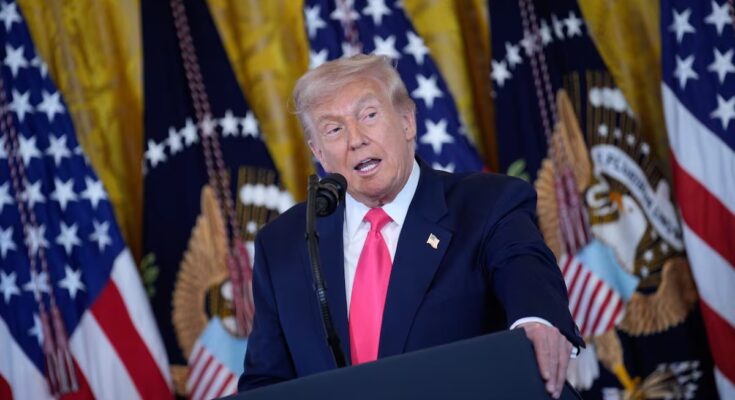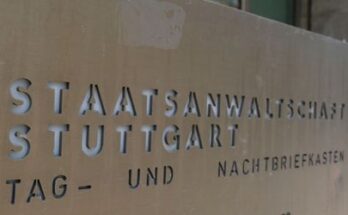The United States will reduce tariffs on some food and textile products from Argentina, El Salvador, Ecuador and Guatemala, according to Administration sources. US President Donald Trump announced the signing of several trade agreements with these countries that will reduce the price of bananas, coffee, beef and citrus fruits, among other products.
The Republican is thus trying to regain the initiative in the fight against the rising cost of living, one of the great axes of the last election campaign for the mayor of New York, which the Republicans sensationally lost at the hands of the socialist Zohran Mamdani.
The new trade agreements that the United States will formalize in a framework agreement with these four countries aim to make visible the Administration’s change in strategy regarding the cost of living. To do this, it will relax some of the so-called reciprocal tariffs that affect key elements of the spending basket.
“The agreements secure economic and national security commitments to strengthen supply chains and trade alliances in the region, deepening bilateral cooperation in trade and investment to provide U.S. exporters unprecedented access to Central and South American markets,” explains the White House through a joint statement with the four Latin American countries.
The note specifies that: “The United States will also grant Most Favored Nation (MFN) tariff treatment to certain products originating in these countries that cannot be grown, mined, or naturally produced in the United States in sufficient quantities.”
Treasury Secretary Scott Bessent had already announced the measure a few days ago in an interview with the Fox News network. “Major news will be announced in the next few days about products we don’t grow in the United States, such as coffee, bananas and other fruits. This will cause prices to drop significantly,” he said.
Last September, the White House issued an executive order providing for a possible reduction in import taxes on certain items not produced in the United States when closing trade deals with other countries.
The joint note specifies that tariffs will also be reduced on other products indicated in a list of the executive decree published in September, as anticipated. The New York Timess, which indicates that the White House is preparing tariff exemptions for hundreds of products in order to ease the strain on the rising cost of living.
“The Trump administration is committed to pursuing a nimble, multifaceted and nuanced strategy on trade and tariffs,” White House spokesman Kush Desai said in a statement.
After last week’s election setback, when Republicans also lost governors of Virginia and New Jersey and other local elections, Trump had ordered his trade team to identify products in the cart that were not made in the United States to lower tariffs.
Furthermore, Trump’s partial withdrawal of tariffs in these countries represents a step backwards in his trade policy at a time when the US Supreme Court is analyzing whether the route used by the American president to impose import tariffs is legal or not. In the first hearing of the case, Supreme Court justices expressed their doubts about the legality of the tariffs, although they have not yet made any decisions.
Argentina will provide preferential market access for exports of U.S. products, including certain drugs, chemicals, machinery, information technology products, medical devices, motor vehicles, and a wide range of agricultural products.
El Salvador will reform non-tariff barriers for the acceptance of vehicles and automotive components manufactured to U.S. motor vehicle safety and emissions standards and certificates for medical devices and pharmaceutical products.
Guatemala is committed to facilitating digital trade, including by refraining from imposing digital services taxes or other measures that discriminate against U.S. digital services or digitally distributed U.S. products.
Additionally, Ecuador will reduce tariff barriers in key commodity sectors, such as dried fruit, fresh fruit, legumes, wheat, wine and spirits, and eliminate the variable tariff applied to many agricultural products. “These measures will generate commercially significant market access opportunities for U.S. exports,” the statement emphasizes.
The framework agreements will be completed in about two weeks and are expected to exempt specific products rather than reduce existing reciprocal tariffs, according to a senior Trump administration official, according to Bloomberg. The White House expects retailers and wholesalers to pass on any benefits to American consumers, the official added.
U.S. tariffs on other products from these countries will remain unchanged: 15% for Ecuador and 10% for Argentina, Guatemala and El Salvador. Additionally, these countries will reduce regulations and licensing requirements for American companies and coordinate with Washington on trade with non-market economies such as China.



